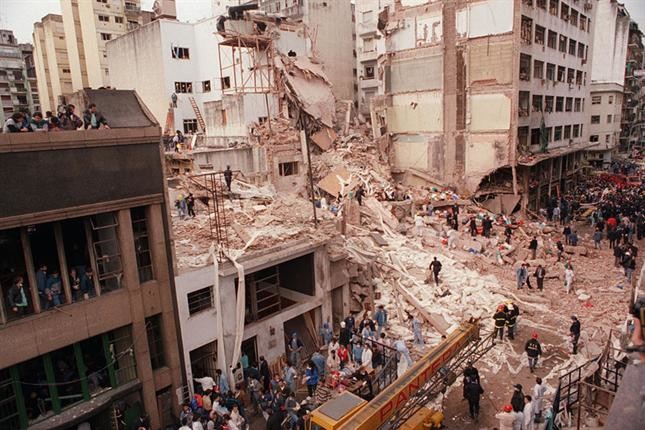Iranian nuclear revelations from Argentina
Israeli Ambassador to the United Nations Danny Danon made a good point at a Security Council meeting on the Middle East last week when he stated that the Iranian regime “has tried to obtain nuclear capabilities for years.”
“Today, the regime’s intentions are no different than before,” Danon said.
Iran wants nuclear weapons for pretty much the same reasons that North Korea pursued and obtained them: to ascend to the commanding heights of global politics as a genuine adversary of the U.S.; to cow and confound its regional adversaries; and to engineer a situation in which the West, having failed to prevent an Iranian bomb just as it did the North Korean one, frets on a daily basis over whether an Islamist regime with a nuclear weapon will be more or less as amenable to national security interest-based negotiations than the Soviet communist one was.
Danon’s observation should kept uppermost in mind in the ongoing debate about American policy towards Iran, and in particular the future of the nuclear deal with Tehran. Even if the deal survives until its “sunset” in 2030, when all restrictions on Iranian nuclear development will be lifted, a future U.S. president may well express fury that his predecessors didn’t deal with the problem when they had the chance. And that president may also find herself in a situation where START-style talks with a nuclear-armed Iran is simply one of a limited number of bad options.
So, while some hope remains for preventing Iran’s nuclear weaponization, the case that Iran’s nuclear ambitions have essentially remained unaltered needs to be stated with absolute clarity. In that sense, a timely example arrived this week, in the form of the testimony by a former Argentine intelligence operative, Ramon Bogado, to a court in Buenos Aires.
Bogado testified before a judicial inquiry into allegations made by the murdered Argentine federal prosecutor, Alberto Nisman, that the former Argentine government of Cristina Fernandez de Kirchner negotiated a secret pact with the Iranians in 2011 to exonerate Tehran of responsibility for the 1994 bombing of the AMIA Jewish center in Buenos Aires. According to Bogado, a part of the deal involved the transfer of nuclear expertise, technology and equipment to Iran from Argentina, which has operated a domestic nuclear program since the early 1960s that many observers regard as the gold standard in that industry.
Any nuclear transactions, Bogado said, would be moved through shell companies in Uruguay and Argentina, under the watchful eye of the late Venezuelan dictator Hugo Chavez—whom Bogado confirmed was the key influence on Kirchner in her decision to embrace Tehran as strategic partner, leaving the unresolved AMIA case, and Nisman personally, as dangerous obstacles in the way of that goal.
It’s important to remember that by the time the secret pact was signed by former Argentine Foreign Minister Hector Timerman and his Iranian counterpart, Ali Akbar Salehi, in January 2011, the revelation of Iran’s surreptitious nuclear activities was almost a decade old. A series of U.N. Security Council resolutions had been passed calling on Iran to cease its enrichment activities and open its nuclear facilities to international inspection, and international sanctions against Tehran were locked in place. It wasn’t an ideal situation, but it was far better than the one we have now. For that reason, Bogado’s statements in Argentina are a reminder that the Iranian regime’s goal is to obtain complete, unsupervised authority over its nuclear program. To that end, it will do its level best to circumvent any restrictions laid down by the international community—just as North Korea did.
Iran may have lost its friends in Latin America like Kirchner and the unlamented Chavez—the man who fathered the current destruction of Venezuela—but its influence in its own region is as never before. President Donald Trump makes many of the right noises in response, but the kind of structural ambiguity plaguing his policy towards Iran ultimately serves the Iranian regime more than anyone else.
Trump understands that the Iranians want nuclear weapons, but he clearly doesn’t judge everything the Iranians do through that filter. Otherwise, he would not have adopted a Switzerlandesque “neutral” position when Iranian-backed Iraqi forces unilaterally attacked Kurdish areas of northern Iraq this week. Instead, he is pretending the Iraqi government in Baghdad is sovereign and independent in the same way that the Danish one in Copenhagen is. To the Iranians, this is a sign of weakness, and as Bogado’s account of their negotiations with the pliant Argentines appears to confirm, weakness is their best advantage.

 47.0°,
Mostly Cloudy
47.0°,
Mostly Cloudy 




